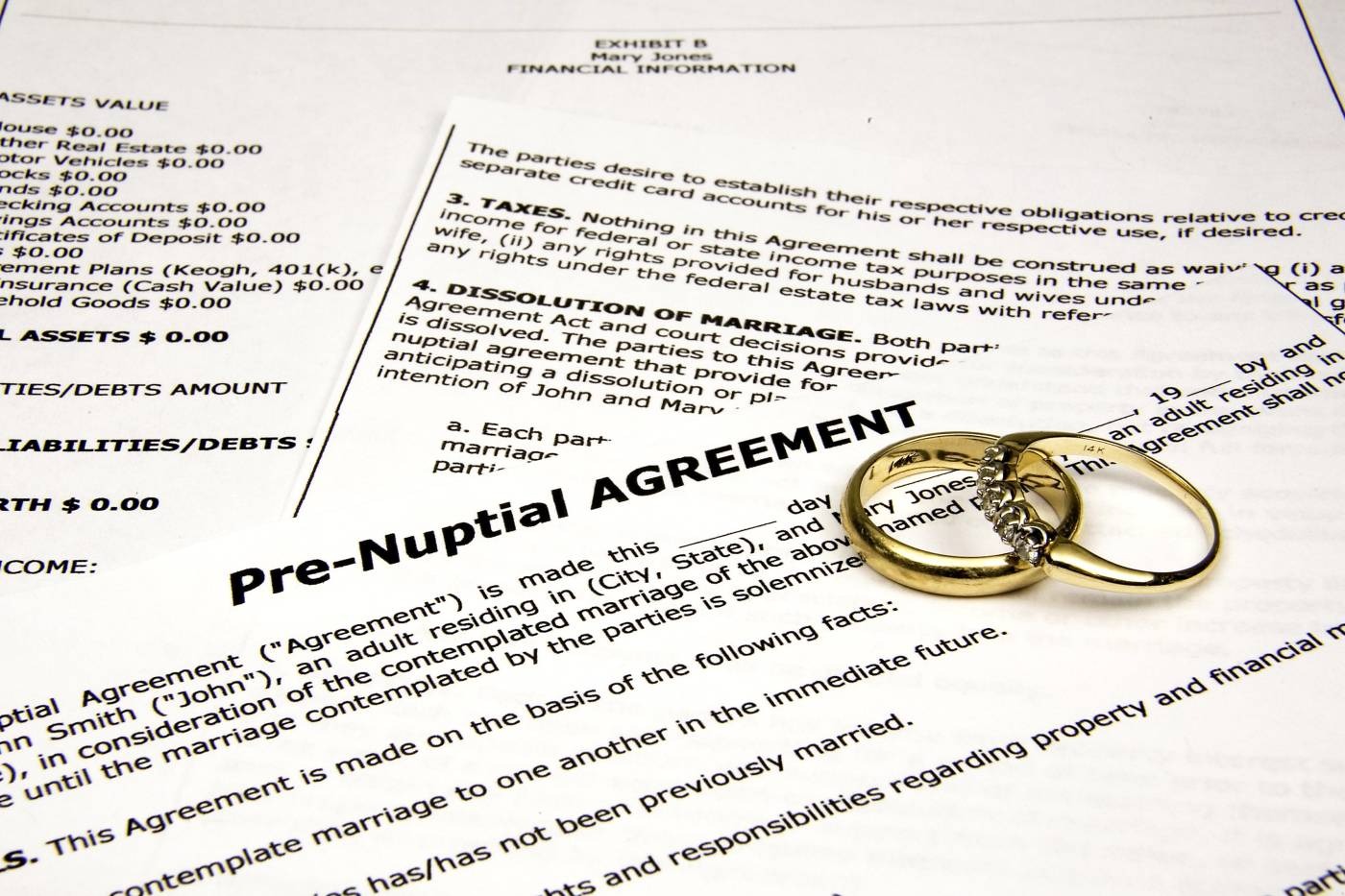My Mother-In-Law Forced Me To Sign A Prenuptial Agreement, But She Was Shocked When I Inherited $50 Million
Forced to sign a prenuptial agreement to prove I wasn’t a “gold digger,” Sandra entered a marriage filled with tension and judgment. But no one expected that an unexpected fortune would shift the balance of power entirely, leaving both her mother-in-law and husband utterly speechless.
My name is Sandra Beckett, and I am 27 years old. I work at a small library in Vermont, where each day passes peacefully amidst shelves filled with books and familiar faces of regular patrons. My life is simple—perhaps too simple by some people’s standards—but it’s exactly the way I like it.

I’ve always gravitated toward quietness, finding solace in the companionship of books instead of the chaos of the outside world. The library is my sanctuary: an old building with creaking floors that echo with every step and shelves overflowing with stories from the past. To me, this place is nothing short of paradise.
Every morning, like clockwork, I unlock the library doors at 7:00 a.m., turn on the lights, and breathe in the comforting scent of books. This daily ritual never loses its charm.
After losing my parents at a young age, my grandmother took me under her wing. She was a beacon of kindness, always encouraging me to lose myself in the pages of a book to discover and learn. Sadly, she is no longer with me, leaving me to navigate life on my own. Without siblings or close family, I’ve built a modest existence for myself.

Everything changed the day Henry Parker walked into the library. He seemed slightly out of place, a man unaccustomed to the calm quiet of the space. His polished appearance and air of confidence made him stand out instantly.
“Can you help me find a book?” he asked, his voice warm and inviting, carrying a charm that felt both unfamiliar and exciting.
“Of course. What are you looking for?” I managed to ask, trying to mask my sudden nervousness. He was looking for The Great Gatsby, and as I led him to the classics section, our hands brushed briefly. That fleeting touch sent an unexpected shiver down my spine.
“Thank you, Sandra,” he said, glancing at my name tag. “I’m Henry. Nice to meet you.”
Returning his smile, I felt a strange but pleasant stirring inside me. That brief interaction marked the beginning of a journey—a journey toward finding love in the most unexpected place.
I believed it was the start of something enduring, a new chapter that would take me away from the tranquil simplicity of my current life and into realms filled with challenges and unforeseen turmoil.

After that day, Henry and I started getting to know each other. Through our conversations, I discovered that he was a successful young entrepreneur from a wealthy and influential family in New York. The differences between us were so stark that I began to feel uneasy.
How could a small-town librarian like me fit into the world of a man like him—a world filled with glamorous parties and million-dollar deals? I feared that we might never truly belong together, that this relationship was nothing more than a fleeting dream.
But Henry dispelled my doubts with his warmth and sincerity. He never came across as arrogant or distant; instead, he exuded a comforting sense of closeness and tranquility. His confident demeanor and refined way of speaking made me feel understood, while his thoughtful gestures left me feeling uniquely special.
Once, after a particularly exhausting day at the library handling stacks of newly delivered books, I called Henry to vent. He chuckled softly and said, “Wait a bit.” Thirty minutes later, he showed up at the library with a steaming cup of coffee and a small pastry. “I thought you might need some energy,” he said with a radiant smile that instantly washed away my fatigue.

Another time, Henry invited me to a charity event hosted by his family. At first, I felt out of place among the extravagant outfits and conversations about business deals I couldn’t follow.
But Henry stayed by my side, gently introducing me to everyone as if he were proud of my presence. “You don’t need to change to fit in here. You’re already enough as you are,” he whispered, giving me a sense of security I had rarely felt before.
Day by day, I realized that Henry wasn’t just a charming and successful man; he was someone I could trust and lean on. He made me feel loved and valued, something I never thought I truly deserved.
One evening, Henry called me early in the morning, saying he wanted to take me out to a special dinner. “It’s just a relaxing evening,” he said in a light but slightly mysterious tone. I didn’t suspect anything and agreed, thinking it was just another romantic date.
That evening, Henry arrived dressed in an elegant suit, his hair neatly styled. His smile and sparkling eyes made me feel lucky to have him by my side. The car took us to a small, charming restaurant tucked away on a quiet street. The place had an old-world charm, with exposed brick walls, warm yellow lights, and soft jazz music playing in the background.

The waiter led us to a small table in the corner, set beautifully with a white tablecloth, vibrant red roses, and a flickering candle in the center. I was taken aback by the thoughtfulness of the setup, but Henry just smiled and said, “I wanted tonight to be special.”
The dinner unfolded in an intimate and cozy atmosphere. I noticed that Henry seemed a bit nervous, but I didn’t think much of it. When dessert was served—a delicate little cake with a soft cream topping—Henry suddenly looked at me, his eyes filled with sincerity.
“You know, Sandra,” he began, his voice soft but steady. “From the moment I met you, I knew you were someone special. You didn’t just bring joy into my life; you made me see the world in an entirely new way. You’ve made everything so much more meaningful.”
My heart started pounding, and I realized what was about to happen. Henry stood up, walked over to me, and knelt down. In his hand was a small box, which he opened to reveal a sparkling diamond ring.
“Sandra, I can’t imagine a single day without you by my side. Will you marry me?”

I instinctively covered my mouth, tears welling up in my eyes. At that moment, a flood of emotions washed over me: happiness, surprise, and an indescribable sense of love. “Yes, Henry, I will,” I said, my voice trembling with emotion.
The entire restaurant seemed to pause for a few seconds before erupting into applause from the other patrons. A waiter brought over a bottle of champagne to celebrate. Henry stood up, slid the ring onto my finger, and pulled me into his arms.
That night, I felt Henry’s love for me more profoundly than ever before. I believed that together, we could overcome any challenge and build a happy life. But little did I know, this was only the beginning of a journey filled with trials waiting ahead.
My mother-in-law, Michelle Parker, was an arrogant woman who constantly looked down on my humble background. During our first meeting, she didn’t hesitate to say, “Henry could have chosen anyone, yet he settled for a librarian?” Her words felt like a dagger straight to my self-esteem.

A few weeks before the wedding, Henry invited me to his family’s house to discuss some final preparations. The atmosphere that day was unusually tense. As I stepped into their luxurious living room, adorned with expensive paintings and lavish furniture, I couldn’t shake the feeling that something was wrong.
Michelle, my future mother-in-law, was already seated with a stack of papers on the table. She smiled, but it wasn’t a warm smile—it was cold, laced with superiority. Henry sat beside her, looking uncomfortable but staying silent.
“Sandra, we need to address this matter before the wedding,” Michelle began, sliding the stack of papers toward me. “This is a prenuptial agreement. It’s just a formality to protect the family’s assets. You understand, don’t you? Our family has a responsibility to preserve what we’ve built over generations.”
I glanced through the papers and saw detailed clauses stating that in the event of a divorce, I would not be entitled to any of the Parker family’s assets. It was clearly designed to ensure I had no claim to their enormous fortune.
“This is necessary,” Michelle added, her eyes scrutinizing me. “I’m sure you have no issue with this. After all, you’re not the type to rely on your husband’s wealth, are you?” Her tone dripped with sarcasm, making my face burn with humiliation.

I felt insulted as if my love for Henry held no value. They were implying that I was there only for the money, that I wasn’t “worthy” of being part of their family. But I held back my emotions, refusing to let Michelle see how deeply her words cut.
I looked over at Henry, hoping for some support. He didn’t say a word, only nodded slightly as if to reassure me that “It’s okay, it’s just a formality.”
I turned back to the document. “Fine,” I said, my voice calm, though my heart was in turmoil. I picked up the pen and signed the paper, believing that my love for Henry mattered more than anything else.
Michelle smiled with satisfaction. “Good. This will make everything clear and avoid unnecessary complications in the future.”

After the wedding, Henry and I moved into a house gifted by his family. It was a grand mansion, complete with meticulously designed interiors and sprawling gardens. Yet, for some reason, it always felt cold and unwelcoming.
I tried to decorate the space to make it feel warmer, more like a home, but every change I made seemed to catch Michelle’s attention—and criticism.
Michelle would often drop by unannounced. She entered the house as if it were still her own, her sharp eyes scanning every corner I had carefully arranged.
“Why would you hang that painting there? It doesn’t match the style of the house,” she remarked during one of her visits, shaking her head at my efforts without hesitation.
Once, while I was preparing dinner for the family, Michelle suddenly walked into the kitchen. She raised an eyebrow at the dishes I was cooking and said, dripping with condescension, “It’s a shame. Henry isn’t used to meals like this. In the Parker family, we have higher standards.” Her words left me feeling both angry and hurt, but I swallowed my frustration and stayed silent.

Over time, Henry seemed to change as well. He became distant, and the romantic evenings and intimate conversations we once shared grew increasingly rare.
Instead, he spent more time discussing business matters with his mother. On several occasions, I tried to talk to him about improving our relationship, but Henry only responded with indifference. Sometimes, he even joined Michelle in mocking me.
One time, when I suggested we have a simple evening together, just the two of us, Henry smirked and said sarcastically, “Maybe you should learn to live up to the Parker family’s standards instead of clinging to these common ideas.” His words felt like a slap to my dignity, making me feel like a stranger in my own marriage.
The tension reached its peak when Michelle, during another one of her unannounced visits, sat down on the sofa, looked me straight in the eye, and said without hesitation, “Sandra, if there’s ever a divorce, you won’t get a penny from this family. That’s why we have the prenuptial agreement.”
Her words tore apart the last shred of hope I was holding onto. I felt humiliated to the core, but I chose to stay silent. I told myself I needed to stay calm and find a way to protect this marriage because I still believed that Henry’s love for me was somewhere beneath all of this, even if it seemed to have faded in the cold, oppressive light of his family.
However, deep down, I knew the cracks in our marriage were growing wider by the day, and if something didn’t change soon, everything might fall apart. But what I didn’t realize then was that even greater storms were waiting just around the corner.

The pressure from marriage and Michelle’s relentless criticism eventually broke me. One morning, while sorting books at the library, I suddenly felt dizzy and collapsed.
I woke up in the hospital, surrounded by cold white lights and the steady beeping of machines. The doctor told me I was suffering from exhaustion due to prolonged stress and that I needed rest. But what truly shocked me was when a stranger—a lawyer—came to visit me at the hospital. Introducing himself as the legal representative of a distant aunt who had recently passed away, he delivered astonishing news.
“I’m sorry for your circumstances,” he said, “but I bring some good news. Your aunt Eleanor has left her entire estate to you, valued at $50 million. All the paperwork has been finalized.”
I could hardly believe what I was hearing. A distant aunt, whom I had only met a handful of times, had completely transformed my life. In that moment, I realized that, for the first time in years, I had the opportunity to take back control of my destiny.

When Michelle and Henry learned about the inheritance, everything changed instantly. Michelle, who had always looked down on me and constantly reminded me of my “worthlessness” in the Parker family, suddenly showed up at the hospital with a large bouquet of flowers.
She spoke in a tone I had never heard from her before—soft and sweet. “Sandra, you’re such an important part of our family. Families always stick together, don’t they?”
Henry, who had neglected me during my struggles, started visiting frequently. He brought my favorite meals, held my hand, and repeatedly said he loved me. “Sandra, I’m sorry I haven’t been there for you enough. Let’s start over, okay?”
Despite their apparent sincerity, I couldn’t forget how they had treated me. Their kind words felt like nothing more than a thin facade hiding their boundless greed. Then one day, while I was napping in the afternoon, I overheard Michelle speaking with Henry outside my hospital room.
“We have to keep her around,” Michelle whispered. “A baby could tie her to us permanently. We can’t let $50 million slip away.”

Those words tore apart the fake kindness they had been trying so hard to display. My heart burned with anger—not just at their lies, but at myself for allowing them to control me for so long.
The next day, I hired a lawyer and began preparing for a divorce. Ironically, the prenuptial agreement Michelle had forced me to sign became the perfect weapon to protect me. It stipulated that the Parker family had no claim to any of my assets, including my inheritance.
When I announced my decision to divorce, Henry and Michelle were in complete disbelief. Michelle screamed, “You can’t do this! You’re part of this family!” But I simply smirked and replied, “Family? You’ve treated me like an asset, nothing more.”
On the day of the trial, I walked into court with a confidence I had never felt before. Henry and his legal team argued that I lacked the financial means to support myself, but their claims were quickly dismissed thanks to the prenuptial agreement. The judge upheld my ownership of all my assets and swiftly concluded the proceedings.

After the trial, Henry tried to speak to me one last time. “Sandra, I’m truly sorry for everything. I was under so much pressure from my mother, but I never stopped loving you,” he said, his voice filled with regret.
I looked at him directly, my expression void of emotion. “Henry, if you truly loved me, you wouldn’t have let things go this far. But now, it’s too late.”
“Goodbye, Henry. Take care of yourself,” I said before turning and walking away.
As I left the courthouse, I felt an enormous weight lifted from my shoulders. I had not only regained my freedom but also restored my self-respect. With my inheritance, I moved to a new city and began an entirely different life.

I used part of the money to open a support center for women who had suffered from domestic abuse and family oppression. Watching other women regain their strength with the help of my center, I realized that the best revenge wasn’t to hurt those who wronged me but to rebuild my life stronger than ever.
Michelle and Henry are now nothing more than faint memories in my life—lessons I will never forget. Most importantly, I learned how to stand up for myself and cherish my own worth.
This story draws inspiration from real-life events and individuals, but it has been adapted and fictionalized for creative expression. Names, characters, and specific details have been altered to protect individuals’ privacy and to enhance the storyline. Any similarity to real persons, living or deceased, or actual events is coincidental and unintentional.

